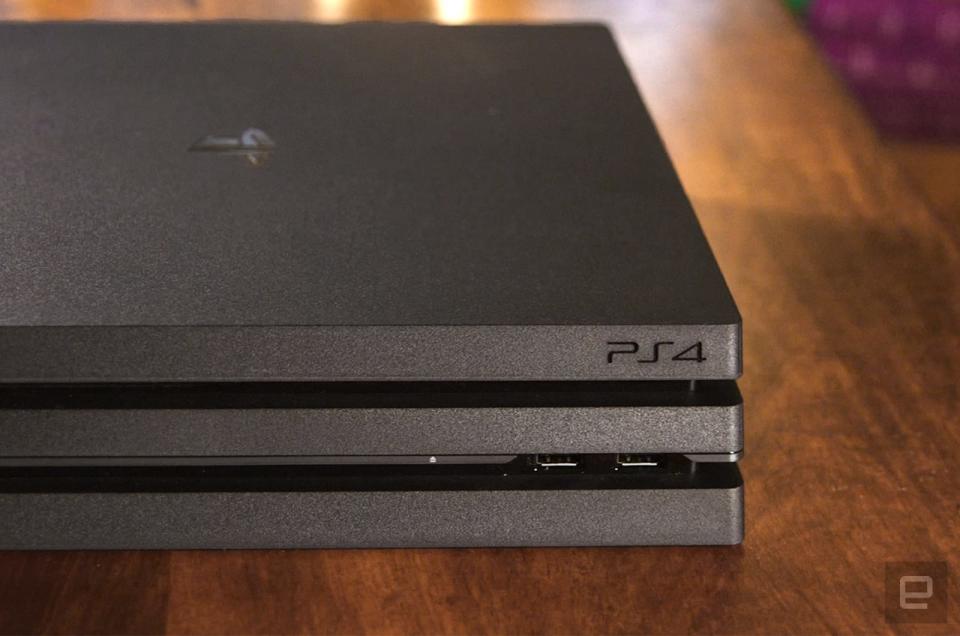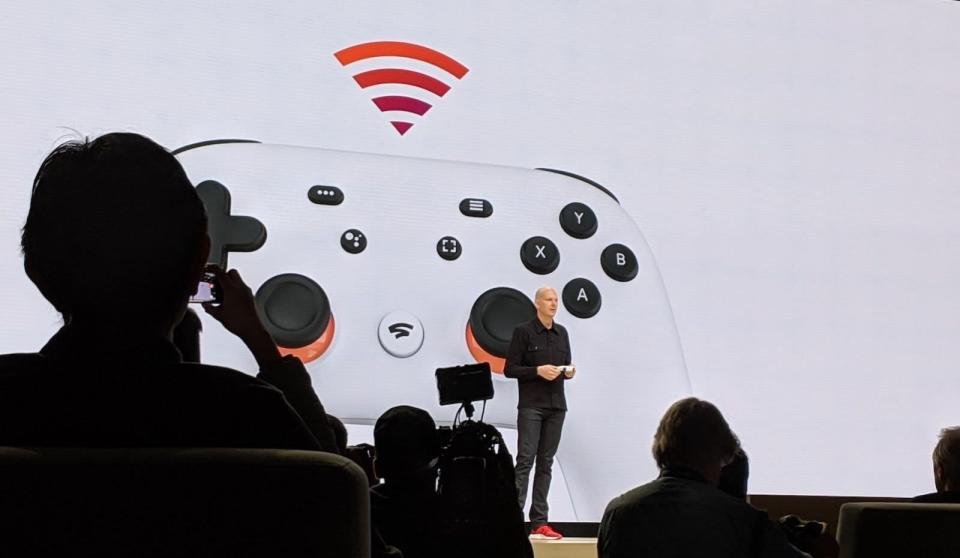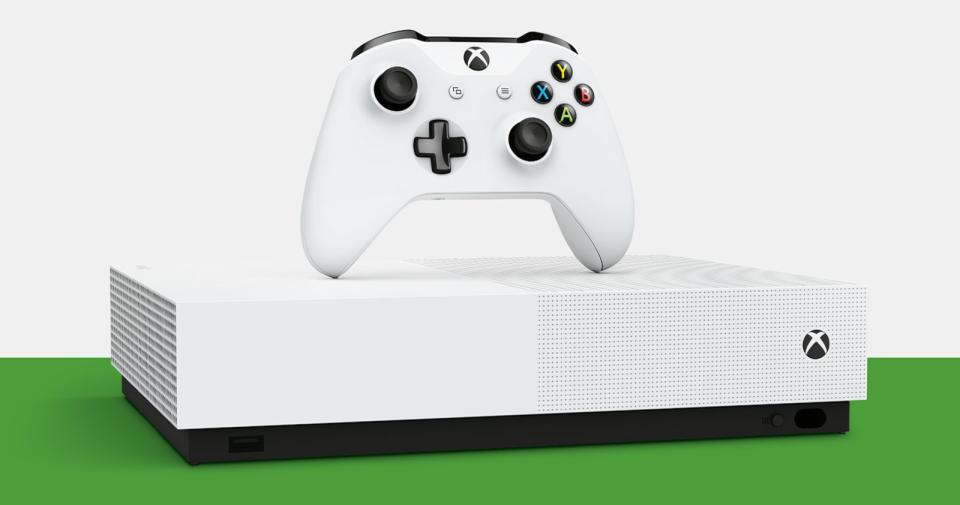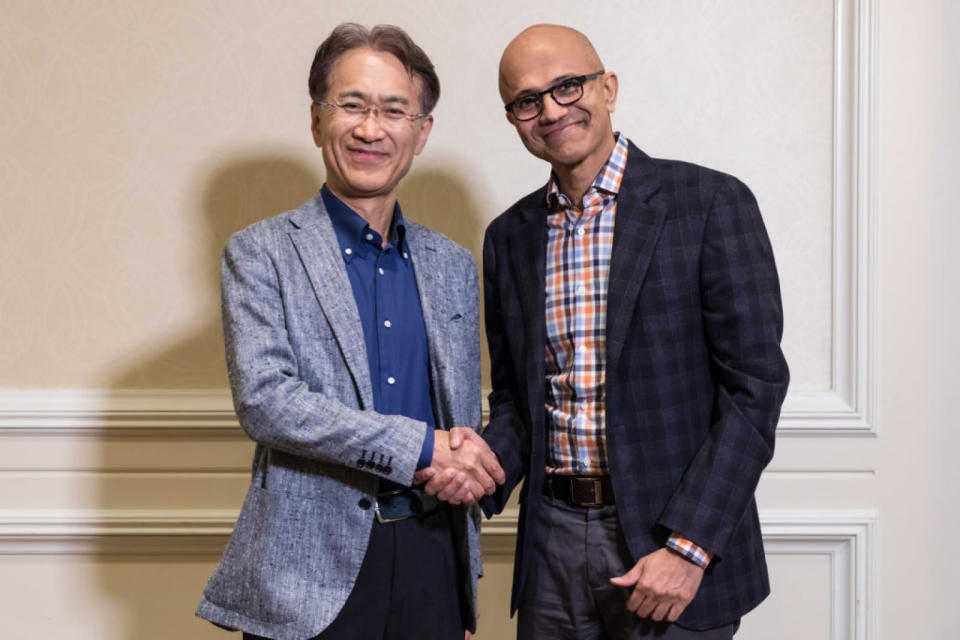Xbox's biggest competitor isn't PlayStation
It's Google.
Stop me if you've heard this one before.
At E3 2013, Microsoft tripped over its shoelaces as it tried to justify the unexpectedly high price and complex ecosystem of its upcoming console, the Xbox One. It required an internet connection and locked purchases to specific accounts, disrupting established resale and game-sharing processes. On top of that, executives were repeatedly dismissive of fans' concerns. When Phil Spencer, then the head of Microsoft Studios, announced a $500 price tag for the Xbox One, the E3 audience gasped and fell silent.
Hours later, Sony took the stage. Executives presented their new console, the PlayStation 4, as the balm to Xbox's burn. It didn't need an internet connection to function, used games would play just fine, and titles wouldn't be tied to online accounts, making sharing easy with physical discs. PlayStation boss Jack Tretton announced the PS4's price of $400 and cheers exploded throughout the stadium.
One week after E3, Microsoft reversed its plans for the Xbox One. It changed its DRM policies, scrapped its online goals, and launched a console that operated a lot like the boxes of generations past, and a lot like the PS4.
The PS4 outsold the Xbox One two-to-one. And then, the industry started to shift.

Almost exactly one year ago today, I looked back on Microsoft's original plan for the Xbox One and realized it made a lot of sense. The biggest games of the day are online-only experiences. Online purchases have outstripped sales of physical discs since 2013, and last year, 83 percent of all game sales were digital, according to Statista. Microsoft has regained ground with fans with the Xbox Game Pass subscription service, and its willingness to enable cross-platform play. Microsoft even launched an all-digital version of the Xbox One S in March.
This is how it's been for nearly 18 years. Xbox and PlayStation push and pull at each other's business models, setting the standards of console gaming in the process. Just recently, pressure from Xbox and Nintendo forced Sony to adopt cross-play, at least in a few titles.
However, the video game universe is expanding. Google, a behemoth of technology and online existence, is diving into games with Stadia, a cloud service that promises the ability to stream any title to any device. If it works, it'll permanently alter the way we play and make games. Stadia launches, in a limited fashion, in November.
Only one gaming company is currently poised to compete with Google. Spoiler: It isn't Sony.

Cross the streams
Microsoft has been preparing for this for years. The company has its own widespread cloud network, Azure, and it's building a streaming service codenamed Project xCloud. Every game that runs on Xbox One, including Xbox 360 backward-compatible titles, will be playable via xCloud, giving the service a debut lineup of more than 3,500 titles. A beta is expected to roll out this year, which Microsoft will likely talk about in just a few hours.
A few days ago, Google hosted a pre-recorded live stream (the great oxymoron of modern media) about Stadia. It was a tightly controlled 25-minute experience led by Stadia head Phil Harrison, who delivered a script with the service's launch details while manspreading on a silent, white background.
At its top tier and with a connection of at least 35 Mbps, Stadia promises lag-free, 4K, HDR gaming at 60 fps and with 5.1 surround sound, all on a Chromecast Ultra, Pixel 3, or any laptop or PC. It'll have more than 30 games available for purchase at launch, including Borderlands 3, The Elder Scrolls Online, Destiny 2, Final Fantasy XV and Mortal Kombat 11. Eventually, the service will roll out to other devices, and it'll include the ability to send games to friends via hyperlink. Google promises games will load in about five seconds.
That is, if it works.

Companies like OnLive and Gaikai have promised seamless game-streaming experiences in the past, but they were clearly deployed too soon. These services offered broken, lag-laden games, when they worked at all. Sony purchased Gaikai in 2012 and has supported a cloud service, PlayStation Now, for the past four years, but it still doesn't offer consistent or reliable gameplay. NVIDIA's GeForce Now is the best proof-of-concept currently on the market, but it's languished in beta since 2013.
Google argues that Stadia will work because the company has spent the past two decades building a dense, global cloud network. Plus, the company has a direct-peering relationship with major internet-service providers like AT&T and Comcast, giving it a direct line of data from its servers to your device. Google hosted a beta for Stadia in October and the results blew developers out of the water.
"It's the depth of the pairing relationships that we have with ISPs to bring Google data to the internet today," Stadia head Phil Harrison told Engadget in March. "We're able to build on top of that to build a very high-performing game experience streamed to players. Whereas other streaming services that have come before have had to go through that multi-hop scenario, we know what it takes to get to that high quality."
However, Google doesn't have a special relationship with every ISP in the world. There are more than 2,000 ISPs in the US alone, many covering rural areas that routinely struggle to maintain consistent internet speeds. Fiber-optic, the fastest internet pipeline around, isn't even accessible in 70 percent of the nation. Google has already, quietly raised the recommended minimum connection speed for 4K Stadia streams from 25 Mbps to 35 Mbps.

All of this means Microsoft has a chance. Google is promising a perfect version of streaming, and in November, it'll have to deliver. Meanwhile, Microsoft will be able to watch, and learn.
Xbox is the only gaming brand with access to Google-level server infrastructure, and Microsoft is one of the few technology companies with enough capital, resources and experience in cloud computing to make game-streaming a reality. Sony can't compete at this tier, and executives there know it. The company's coming hardware, commonly called the PlayStation 5, is a traditional console upgrade, supporting 8K graphics and 3D audio with a brand-new CPU and GPU. It definitely won't hit the market this year, but when it does, it'll have a disc drive.
Microsoft is pivoting away from this traditional model. Sure, it'll still release new consoles with beefed-up guts, but the business behind those boxes is shifting. Xbox is fortifying its digital biome with Game Pass Ultimate, which combines Xbox Live Gold and Game Pass. It's testing the waters for an online-only console generation with the Xbox One S All-Digital Edition. It's happily enabling cross-play with any game and platform, and expanding its PC offerings. It's putting Halo on Steam.
Xbox is breaking out of the console-gaming space to compete with the broader tech market. PlayStation isn't Xbox's top concern any longer.

Microsoft and Sony announced a cloud-computing partnership this May. Under this deal, Sony will tap into Microsoft's data centers and artificial intelligence services for its own gaming and streaming efforts. Meanwhile, Microsoft will get access to Sony's image sensors. The partnership could be positive news for the future of cross-play -- and mean that Sony might be ready to compete on streaming -- but it's also a sign that Microsoft is confident in its position as a leader in this space, snagging its most notorious gaming rival as a cloud customer.
Netflix, but for games
Google is massive enough that Stadia could crash and burn, and the company could walk away with barely a blip in its business model, a lot like it did with Fiber. And YouTube Gaming. And Google+. And Glass. And Project Ara. And... you get it. Xbox and Sony, meanwhile, have reputations and revenue streams to protect.
Xbox got the timing wrong for digital gaming once before, and there's no guarantee that today will be any different. However, it's certain that streaming plays a massive role in the future of video games. Global internet infrastructure grows denser by the day, and advancements like 5G are on the horizon. Over the next decade, it's likely Xbox, PlayStation and even Stadia will evolve into apps like HBO Now, Hulu or Netflix. Dedicated gaming hardware will become, and already is becoming, less important to the everyday player.
In this world, content is king. PlayStation has a history rich in exclusive franchises and Xbox has a few of its own -- plus it just bought a handful of notable creators under Xbox Game Studios. Microsoft and Sony will compete into eternity, when it comes to games. Microsoft and Google, however, are building the platform on which those games will exist.

